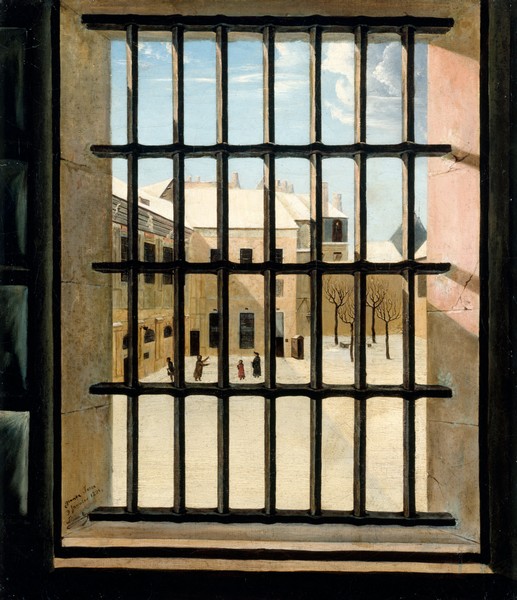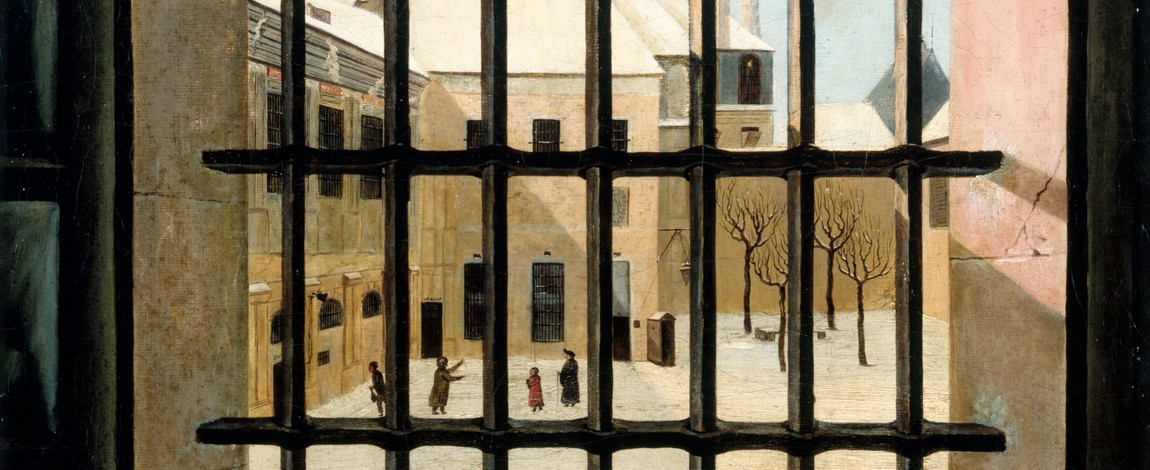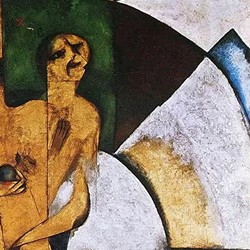
In Burning Patience [Ardiente paciencia] by Antonio Skármeta, Pablo Neruda reproaches the postman Mario Jiménez for sending the girl he loves, as if they were his own, verses he has written. And the young man replies: “Poetry doesn't belong to those who write it, but to those who need it”. I was thinking about it while I was preparing this article about a song by Reynaldo Hahn that starts with the words Le ciel est, par-dessus le toit, / if you bleu, si calme! [Over the roof, the sky is / So blue, so calm!]. The song describes the pieces of life that can be seen above a roof: the sky, a palm tree, the sound of a bell, the singing of a bird, while the poetic voice asks himself what he has done with his life. The first two stanzas are calm, like the sky, and the rhythm cradles us like the wind moves the palms. The last two are agitated, but I feel more melancholy than despair. To finish, with the repetition of the first two verses, the calm returns. It's a very nice song, maybe you would like to listen to it before you keep reading?
The song makes me think of a moment of nostalgia, the poet sitting in a cozy room with the look wagging through the open window. Perhaps the poet is in a garden, or he is even a monk who stands in the peace of the cloister. A few images come to me, all of them very far from reality, even if the title, D'une prison, gives me a clue. I was thinking of an imaginary prison, of a retreat. However, the poem was written in a real prison, that of Mons, in Belgium, which has been in operation since 1870. I have looked for pictures and they immediately reminded me of the old prison in Barcelona, the Model: the star-shaped structure, the galleries, the cells, with small windows and bars, of course. The oppressive images of the prison have wiped out everything that the music suggested to me.
Between 1873 and 1875, Paul Verlaine spent fifteen months in the prison of Mons, convicted of firing Arthur Rimbaud. Fortunately, he only slightly wounded him in the wrist, and Rimbaud did not want to sue him. However, Verlaine was still tried and convicted. During those months, he wrote a collection of thirty-two poems, Cellulairement, which he finally did not publish. He preferred to publish the poems distributed by various collections. In particular, Le ciel est, par-dessus le toit is no. 6 in the third part of Sagesse.
Was Hahn, who composed a mélodie so far from its context ,not aware of the story of Verlaine? He knew it, certainly, he knew it first-hand. That's what got me thinking about Skármeta's quote, as if the composer had felt free to make his poem his own because he needed it that way, ignoring the circumstances that led to its creation.
Or perhaps because he knew Verlaine, Hahn reflected, to some extent, his experience in prison. It seems that for the poet, despite all the suffering, it was a time of reflection. His relationship with Rimbaud was over, as was his marriage to Mathilde. He encountered the Catholic faith once more, and I hope he remained sober (I'm assuming there was not absinthe in prison). Considering that physically the experience was not so hard because he was exempted from work in prison, it appears that Verlaine found a certain peace in Mons, and this is what other writings and poems transmit.
I don't know Hahn's thoughts when he composed D'une prison, of course. The song, so beautiful but so far from the real experience, has made me think once again that there are many ways to approach a poem, and that our experience influences our appreciation. And also that if the poem becomes a song, that is, we come to know it filtered by the perception of a composer, then a different poem actually arrives to us, even if the words are the same. We still need to consider the performers... These are the kinds of thoughts we Lied lovers reflect from time to time, didn't we?
For the moment I leave you with D'une prison by Reynaldo Hahn in the wonderful version of Susan Graham and Malcolm Martineau, and in a few weeks we will return to the poem, with another of the many songs that it has inspired.
Le ciel est, par-dessus le toit,
Si bleu, si calme !
Un arbre, par-dessus le toit,
Berce sa palme.
La cloche, dans le ciel qu'on voit,
Doucement tinte.
Un oiseau sur l'arbre qu'on voit
Chante sa plainte.
Mon Dieu, mon Dieu, la vie est là
Simple et tranquille.
Cette paisible rumeur-là
Vient de la ville.
Qu'as-tu fait, ô toi que voilà
Pleurant sans cesse,
Dis, qu'as-tu fait, toi que voilà,
De ta jeunesse ?
Over the roof, the sky is
So blue, so calm!
Above the roof, a tree
Waves its foliage.
In the sky one can see the bell
Softly ringing.
On the tree one can see a bird
Singing its lament.
My God, my God, life is there,
Simple and tranquil.
This peaceful rumor there
Comes from the town.
What have you done, o you there,
Weeping without end,
Tell me, what have you done, you there,
With your youth?
(translation by Emily Ezust)


















Comments powered by CComment